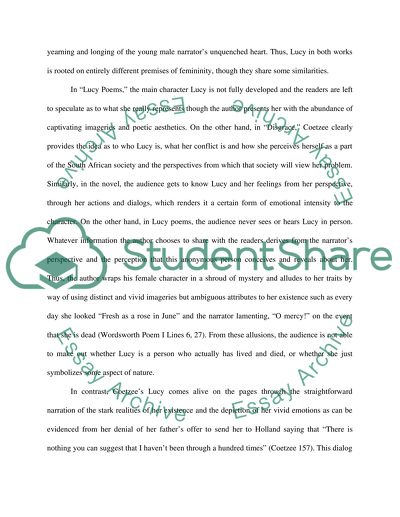Cite this document
(“Analyze Lucy in Disgrace by comparing her to Lucy in William Research Paper”, n.d.)
Retrieved de https://studentshare.org/english/1461652--analyze-lucy-in-disgrace-by-comparing-her-to-lucy
Retrieved de https://studentshare.org/english/1461652--analyze-lucy-in-disgrace-by-comparing-her-to-lucy
(Analyze Lucy in Disgrace by Comparing Her to Lucy in William Research Paper)
https://studentshare.org/english/1461652--analyze-lucy-in-disgrace-by-comparing-her-to-lucy.
https://studentshare.org/english/1461652--analyze-lucy-in-disgrace-by-comparing-her-to-lucy.
“Analyze Lucy in Disgrace by Comparing Her to Lucy in William Research Paper”, n.d. https://studentshare.org/english/1461652--analyze-lucy-in-disgrace-by-comparing-her-to-lucy.


